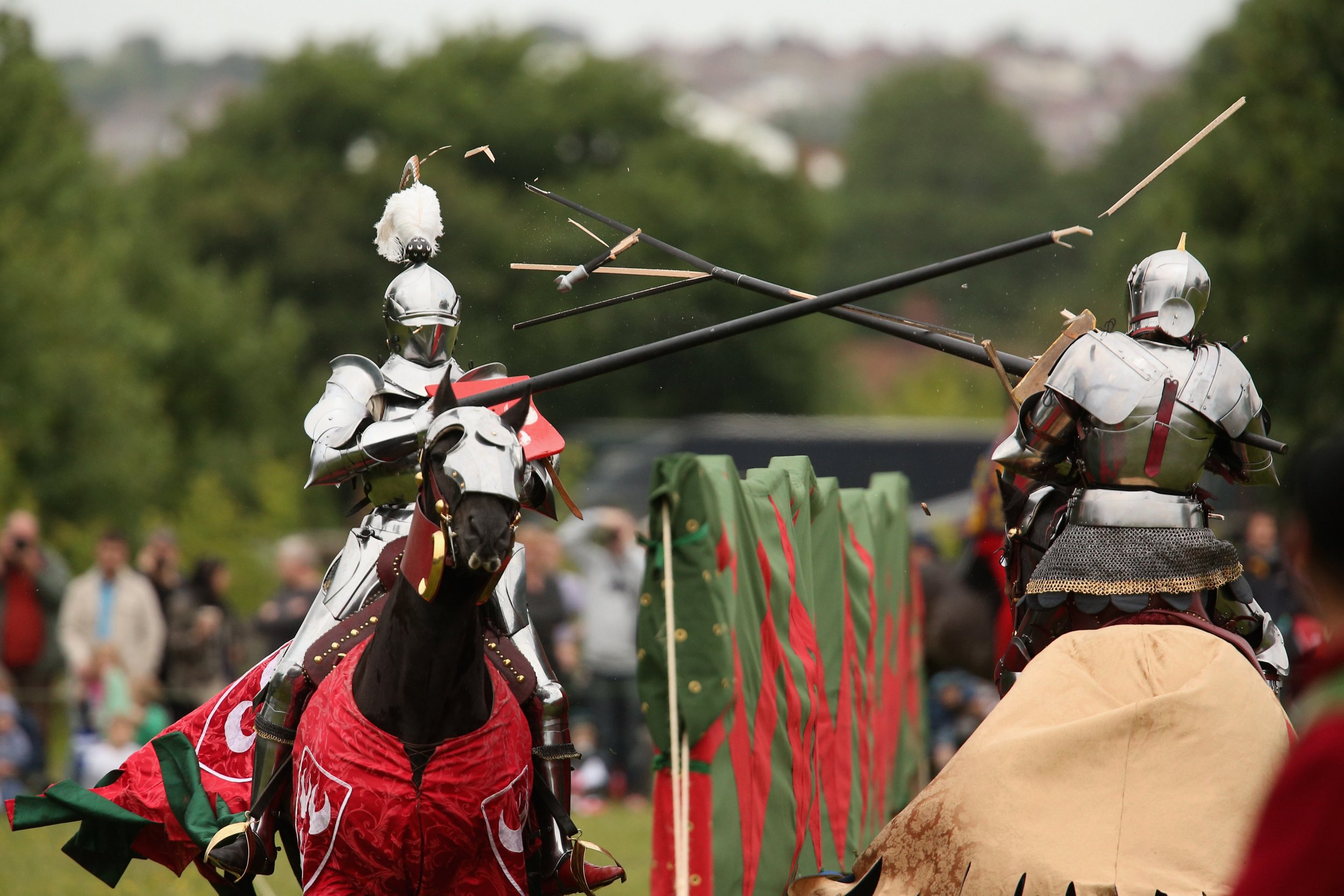
The International Olympic Association (IOC) opened up the possibility of new sports being added to its lineup two years ago. Having dropped the 28-sport cap, both golf and rugby will be played this summer at Rio 2016, while a host of other sports, such as karate, baseball and squash, prepare bids for Tokyo 2020.
A petition launched by English Heritage on Thursday called for the IOC to add jousting to that list of Olympic hopefuls. But this is not the first time the medieval event has been put forward.
About a decade ago, an attempt was made by the International Jousting Association (IJA) to get the sport onto the program. A lack of global unity is cited as preventing the effort from making any real impact, but now there is a belief that the sport can meet the necessary criteria.
In order for jousting—or any other sport—to make it to the Olympics, it must apply to become a "recognized sport" by the IOC by having an international federation, conforming with the Olympic Charter and implementing the World Anti-Doping code.
And the IJA believes it is ready this time round. Nikki Fourtzialas, the U.S. representative for the association, says technology has played a pivotal role in uniting the sport across the world.
"One of the challenges is that you have to have the same rules and the same equipment in each of the countries, but everyone has diversified rules," Fourtzialas, who has been competing for 13 years, tells Newsweek.
"Ten years ago jousting was in its infancy. Now, with the internet [and] social media, we are like a big family; hundreds of people do it. It has blossomed to a point where we have enough of a baseline as well as better communication to all get together."
Jousting is contested in many different ways across the world, but there are three main levels to compete at. The lowest, for debutants and children, uses foam lances while the mid-level, and most popular, has an aim of breaking the tip of your lance on an opponent. The most extreme style, called "heavy jousting," is where the purpose is to knock your opponent from the horse. "It's dangerous," said Fourtzialas. "There's maybe 60 people in the world who do that."
One of those is Charlie Andrews, the reigning world champion in the sport, who has been pushing the idea of jousting becoming an Olympic sport for 20 years. "We've been trying to get that dog to hunt for however many years," the 48-year-old from Utah says.
But Andrews cannot envisage the sport he loves making it to the Games during his lifetime due to division across the jousting world and the huge expense.
"For the Olympics [to be possible], firstly, you need to look organized and at least be on the same page, and, second, you can't be charging $30,000 dollars for a suit of armor that someone is going to go out and joust in. That's the main reason this shit ain't ever going to become a sport."
Cost also prevents youngsters getting involved, Andrews says. But it is the element of danger that seems to attract those who do.
It was during a trip to Canada in 2003 that Fourtzialas fell in love with jousting as she watched a friend compete. "I was hooked," said the 46-year-old from Boston. "I was like, 'This is awesome.'
"You take horses and violence, it's like chocolate and peanut butter. You take a horse that's a prey animal and you turn them into a predator, and it's a fascinating evolution. My horse [called Thunder] loves, loves, loves jousting, loves the crowd, loves the kids. [He] can't wait to run down that field."
But the prospect of horses being subjected to competing in jousting at an Olympic Games is not a prospect Mimi Bekhechi, director of People for the Ethical Treatment of Animals (PETA), is willing to entertain.
"Jousting belongs in the Middle Ages, not the Olympics," Bekhechi says.
"Forcing two horses to charge at each other at speeds of up to 30 mph—whilst bearing the weight of heavily armored riders and putting them at risk of being speared in the face, chest, and body or being hurled to the ground and breaking their legs—would go entirely against the Olympic principle of fair play and potentially violate animal-welfare laws in several countries."
Leaders from the IJA have already been in discussion about what "Olympic jousting" would look like, with Tokyo 2020 selected as a possible target.
But despite English Heritage's petition, a spokesperson for the IOC insisted the organization was "unaware" of any requests for the sport to receive recognition.
Spectators don't look likely to see any lances at the Olympic Games any time soon.
Uncommon Knowledge
Newsweek is committed to challenging conventional wisdom and finding connections in the search for common ground.
Newsweek is committed to challenging conventional wisdom and finding connections in the search for common ground.
About the writer
To read how Newsweek uses AI as a newsroom tool, Click here.








